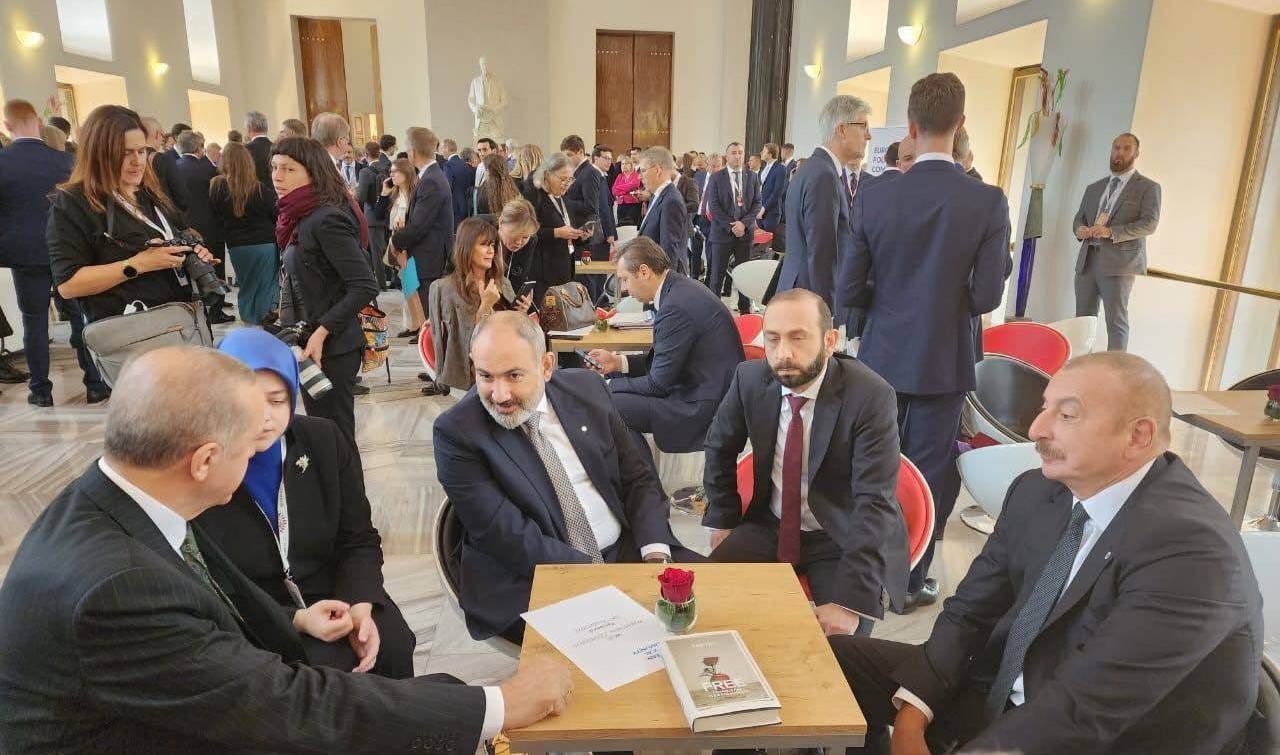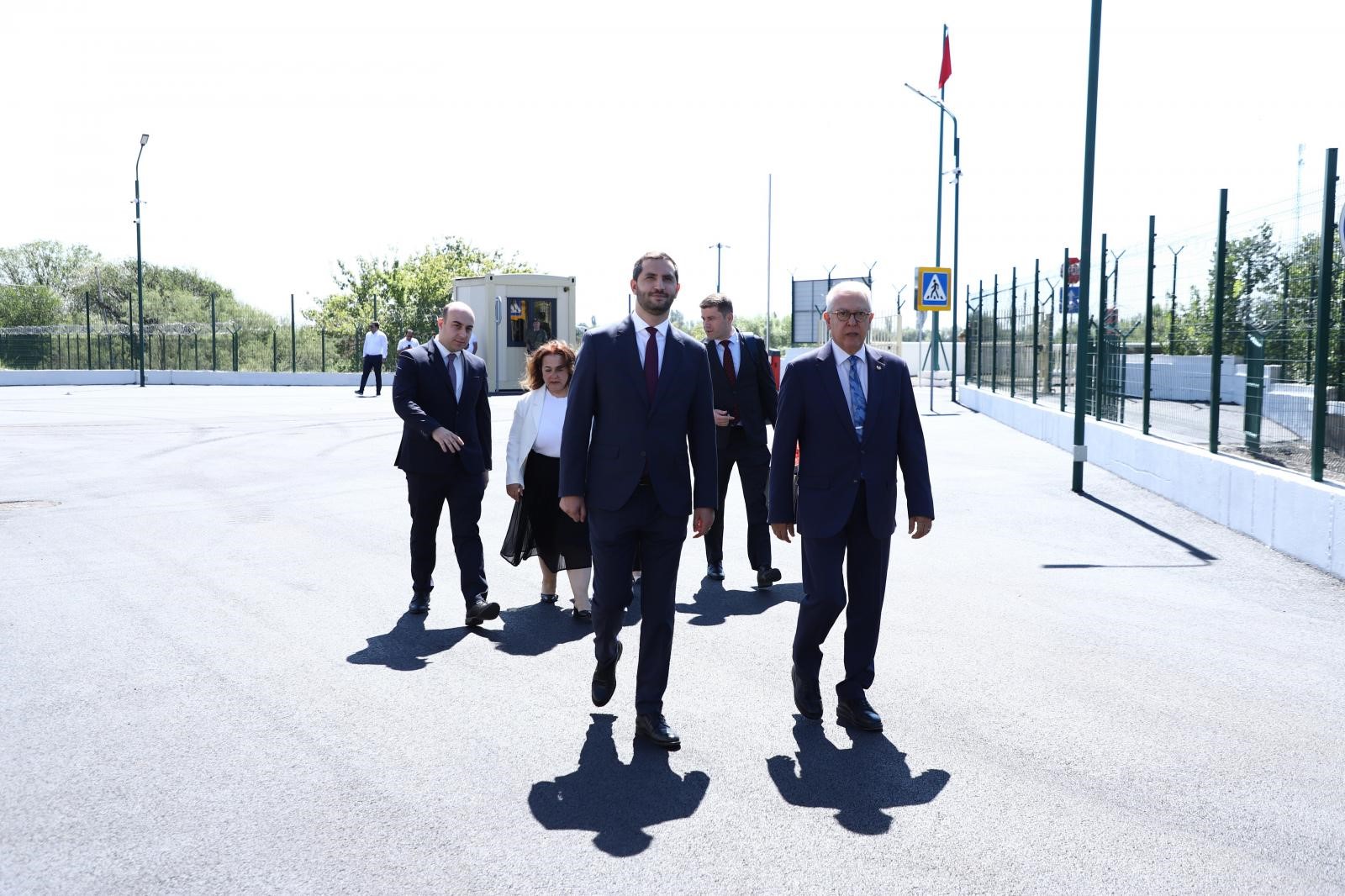"No diplomatic breakthroughs": Pashinyan and Erdogan meet in Istanbul
Pashinyan and Erdogan meet in Istanbul
Armenian Prime Minister Nikol Pashinyan and Turkish President Recep Tayyip Erdogan met in Istanbul. The Armenian leader is in Turkey on a working visit at the invitation of the Turkish president.
This is the third meeting between the leaders of the two countries, but it can be considered their first official negotiations. Previously, they met during events held abroad: in October 2022 in Prague during the European Political Community summit and in September 2024 in New York during the 79th session of the UN General Assembly.
Following the meeting, only a brief statement was published on the Armenian Prime Minister’s website. It said that “the sides discussed the process of normalising Armenian–Turkish relations, emphasised the importance of continuing a constructive dialogue and achieving concrete results.”
Political analyst Ruben Mehrabyan believes the visit itself was historic, but time will tell whether its results will be.
“I think our expectations should be aligned with reality,” he told JAMnews, adding that diplomatic breakthroughs were never to be expected.
This marks Pashinyan’s second visit to Turkey. In June 2023, he attended Erdoğan’s inauguration ceremony in Ankara.
A few weeks ago, the two leaders held a phone conversation. They discussed issues on the Armenian–Turkish agenda, as well as the regional situation, and agreed to continue the dialogue.
- ‘Unprecedented case and format’: Pashinyan’s interview with Turkish journalists
- 110th anniversary of the Armenian Genocide: ‘International recognition is not among government’s priorities’
- Armenia–Turkey border opens for 10 days – what’s next?
- Opinion: “There is pressure on Erdoğan regarding the opening of the Armenian-Turkish border”
What the leaders of Armenia and Turkey discussed
According to the Armenian Prime Minister’s office, the two leaders touched on regional developments and potential areas for bilateral cooperation in this context.
“Prime Minister Pashinyan reaffirmed Armenia’s commitment to establishing peace and stability in the region and stressed his dedication to continuing the policy of normalising relations with neighbouring countries.
The leaders of the two countries confirmed their readiness to maintain direct contacts and dialogue.
They also exchanged views on the peace process between Armenia and Azerbaijan, as well as the Armenian government’s ‘Crossroads of Peace‘ project,” the statement said.
Pashinyan’s meeting with Armenian community
A few hours before the bilateral talks, Nikol Pashinyan met with representatives of the Armenian community in Istanbul. According to the Prime Minister’s office, Pashinyan told those gathered that his visit became possible as a result of intensified dialogue with Turkey. He expressed hope that the meeting with Erdoğan would give new momentum to bilateral relations.
The Armenian leader stressed that the normalisation process “serves the interests of both countries.” He also highlighted the role of the Armenian community in Turkey “in building inter-state relations and deepening dialogue.”
Members of the Armenian diaspora asked Pashinyan about the details of his visit to Istanbul, as well as the steps being taken to establish peace between Armenia and Azerbaijan and regional developments.
According to photos published by the Prime Minister’s office, Pashinyan also presented the Armenian government’s “Crossroads of Peace” project on unblocking regional communications.
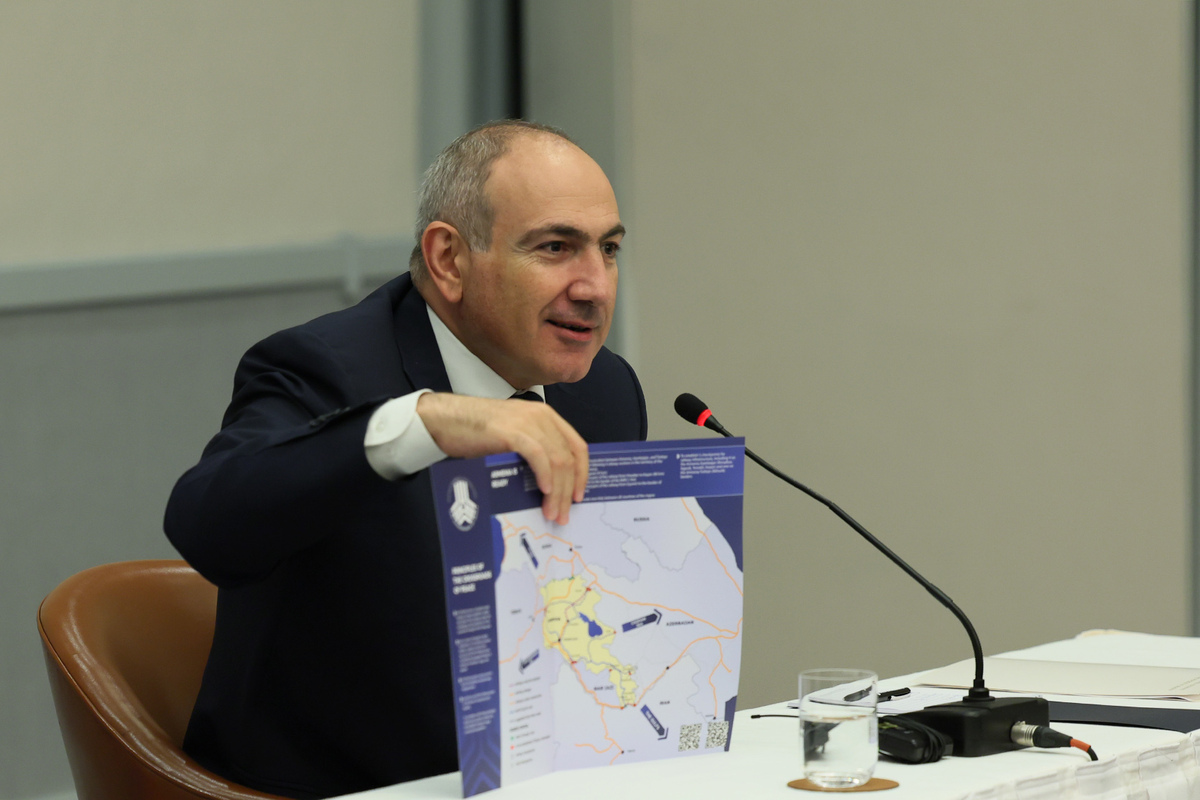
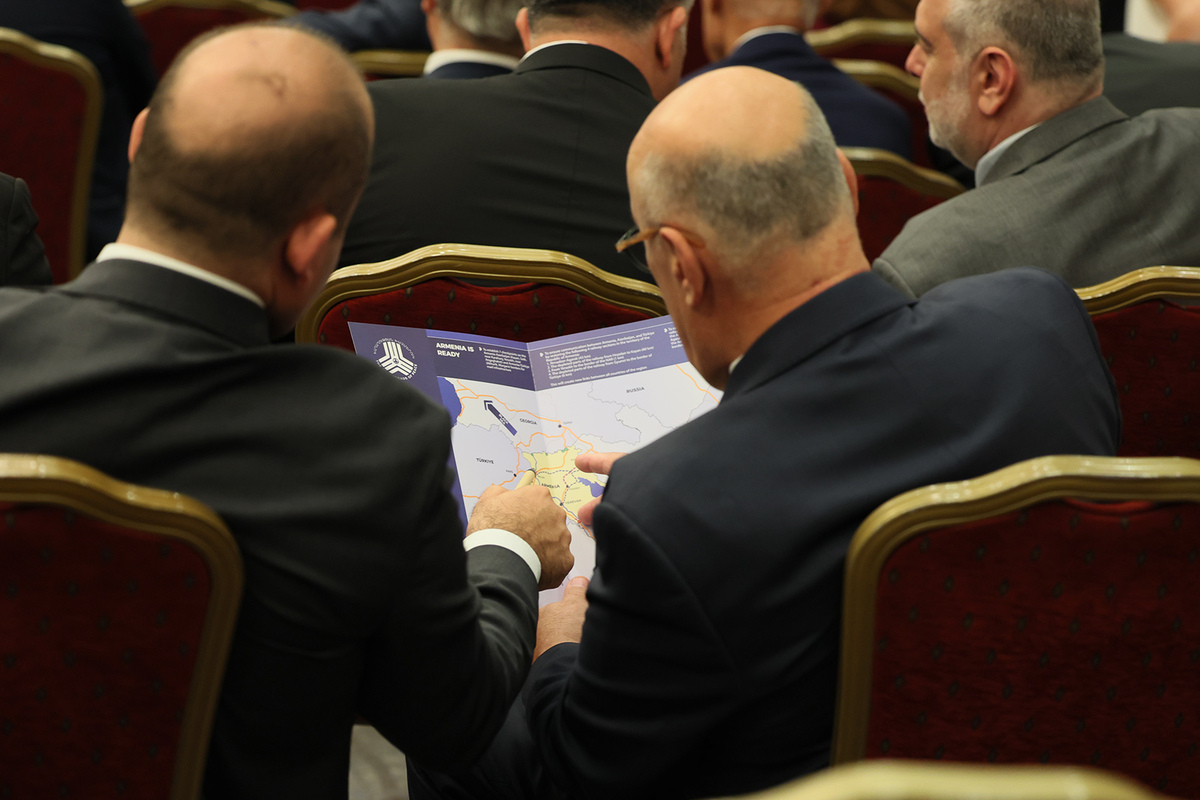
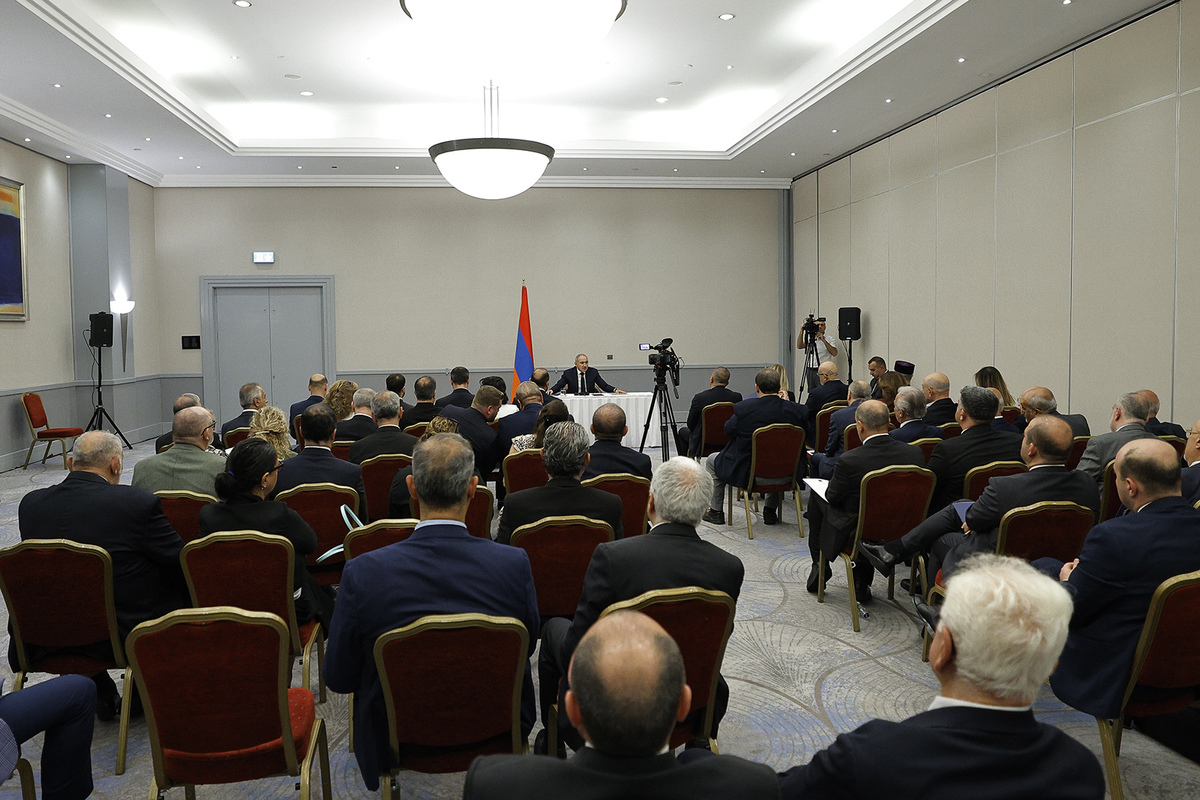
After the meeting, Pashinyan visited an Armenian church. He posted a video on his Facebook page with the caption: “Lit a candle at the Holy Mother of God Cathedral in Istanbul.”
Years of normalisation talks yield limited results
In 1991, following the collapse of the USSR, Turkey de facto recognised Armenia, but to this day it refuses to establish diplomatic relations. Since 1993, Turkey has unilaterally closed both its air and land borders with Armenia. Thanks to international efforts, the air border was reopened in 1995, but the land border remains closed.
After the Second Karabakh War, in December 2021, Yerevan and Ankara declared their readiness to normalise relations. The two countries appointed special representatives to handle the process. Since 2022, five meetings have taken place between Ruben Rubinyan and Serdar Kılıç: the first in Moscow, the next three in Vienna, and the most recent in July 2024 at the Margara–Alican checkpoint on the Armenian–Turkish border.
After each meeting, both sides expressed willingness to continue talks without preconditions. During this time, they agreed to:
- allow third-country nationals to cross the Armenia–Turkey land border,
- assess technical requirements to activate the Ahurik–Akyaka railway crossing,
- mutually ease visa procedures for holders of diplomatic and service passports.
However, none of these agreements has yet been implemented.
The normalisation of Armenian–Turkish relations is taking place bilaterally, but Turkey continues to tie it to progress in Armenian–Azerbaijani talks.
Armenian analysts believe Turkey is still imposing preconditions — especially the demand to drop calls for recognition of the Armenian Genocide. They also note that Turkey’s preconditions are often voiced by officials in Baku.
The Armenian Genocide refers to the mass killings carried out in Ottoman Turkey in 1915. At the time, around 2.5 million Armenians lived in the Ottoman Empire. More than half were killed through massacres and mass deportations.
Armenia, along with several Western countries and organisations, officially recognises these events as genocide. Turkey categorically rejects this terminology.
Expert commentary
Political analyst Ruben Mehrabyan believes it is significant that Erdoğan invited Pashinyan to Turkey and that the bilateral meeting took place. However, he cautions that the Armenian side should not have inflated expectations:
“Turkey’s relationship with Azerbaijan is of paramount importance. It is unrealistic to expect Turkey to overlook this and pursue diplomatic breakthroughs with Armenia unilaterally.”
At the same time, the analyst suggests that Yerevan can reasonably hope Ankara will intensify its calls on Baku to sign a peace agreement with Yerevan as soon as possible.
Mehrabyan also addressed the most problematic issue — the unblocking of regional communications. He pointed out that due to the Iran–Israel conflict, intercontinental flights are now routed through the South Caucasus. In this context, he questioned why the same could not be done on land.
He believes a compromise is possible — one that avoids corridor-based logic. It would not require Armenia to cross its red lines by giving up control over its territory. According to the expert, what is needed is simply the political will on Turkey’s part:
“Turkey has enough leverage over Azerbaijan to make such a solution a reality. Azerbaijan would be taking a significant risk if it became the number one obstacle on the route from Europe to Asia.”
The analyst believes Armenian–Turkish agreements, especially on opening the border for third-country nationals and diplomatic passport holders, must be implemented. In his view, the Pashinyan–Erdoğan meeting inspires cautious optimism.










